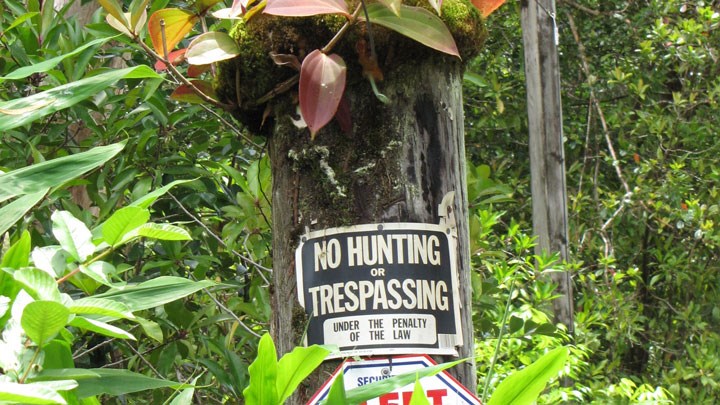
by Mark Chesnut - Monday, February 6, 2023

The increasing trend of some private landowners posting fake no-trespassing signs to block hunter access to public lands has prompted Wyoming lawmakers to consider legislation designed to curb the problem. The measure, House Bill 147, authored by state Rep. Karlee Provenza, amends the current Wyoming law concerning interfering with hunters to include not “knowingly and without authorization posting signs that restrict access to or use of state or federal land on which the lawful taking of or the process of lawfully taking any wildlife is permitted.”
Rep. Provenza explained that the measure will “target only blatantly egregious instances of people trying to falsely post public land or chase hunters off it. “A few people who are trying to intentionally claim that public land is their private land are giving good landowners a bad name,” she said.
As explained by the NRA’s Brian Gosch, Wyoming state director for the NRA Institute for Legislative Action, “The state and its residents must respect the role that legal, regulated hunting plays in wildlife conservation, even if they aren’t hunters themselves.”
The situation has escalated to the point that several Wyoming hunters testified at a recent hearing of the Wyoming House of Representatives’ Travel, Recreation, Wildlife and Cultural Resources Committee, some in person and some via video conference, after experiencing incidents of public lands being posted.
Laramie resident Buzz Hettick, co-chair of the organization Backcountry Hunters and Anglers, shared how he attempted to avoid any trouble after drawing an elk tag in an area where he had heard of a difficult landowner. He contacted the landowner in advance to let him know he would be hunting nearby public land.
“I went there on opening day and hunted, no problem,” he testified. “My friend and I went back about a week later and this [no trespassing] sign was in the middle of the county road. That was specifically to keep me out of there.”
Hettick subsequently talked to the county sheriff and was advised to ignore the sign and hunt. Both he and his friend killed an elk—but they wouldn’t have if they had heeded the sign.
“This is the kind of thing that this bill is trying to address,” Hettick said. “I don’t appreciate having my public lands blocked like that. It’s not appropriate, it’s not fair, it’s dishonest and I want to have a remedy for that.”
Wyoming hunter Nick Mahon also testified, telling committee members of encounters he had with landowners who tried to run him off property that he knew to be public land.
“Access to public lands is the single most important part of enriching the lives of my family and friends,” Mahon testified. “We hunt for food, to teach our kids about ethics and game management, respect for the land and simply to enjoy wild places. This bill is simple, it’s not a novel concept and it benefits everyone.”
Such problems with private landowners trying to restrict public land access have become more prevalent in recent years because of increased availability of mapping apps like OnX that use GPS and satellite technology to show hunters exactly where they are, and which parcels of land are public or private. Consequently, some private landowners who likely have posted public land for years are being revealed by the newer mapping technology.
Note that the measure is careful to protect the private property rights of landowners while keeping public lands open to hunters. It clearly states that the new provision will “not interfere with any landowner’s right to prevent criminal trespass on the landowner’s private property.”
We’ll continue to follow this legislation and update our report as further legislative action occurs.
About the Author
Freelance writer Mark Chesnut is the owner/editorial director at Red Setter Communications LLC in Jenks, Okla. An avid hunter, shooter and field-trialer, he has been covering Second Amendment issues and politics on a near-daily basis for over 20 years, previously serving as editor of the NRA’s America’s First Freedom.
E-mail your comments/questions about this site to:
[email protected]
Proudly supported by The NRA Foundation and Friends of NRA fundraising.
